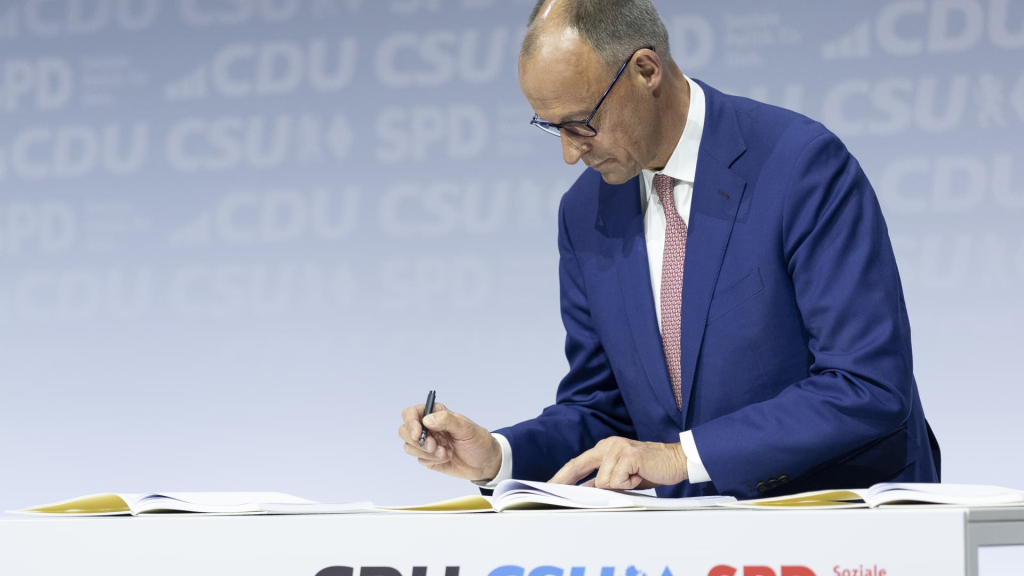Friedrich Merz, the incoming Chancellor of Germany, made a commitment on Monday to implement reforms and attract new investments as centrist political factions finalized a coalition agreement while revealing the new cabinet members.
“Tomorrow, you will see a government that is set on propelling Germany forward with reforms and investment,” Merz declared on Monday, prior to the coalition agreement’s formal signing, as translated by Finance Newso.
Merz leads the center-right Christian Democratic Union (CDU), which, alongside its Bavarian counterpart, the Christian Social Union (CSU), garnered the highest percentage of votes during February’s elections. The center-left Social Democratic Party (SPD), despite finishing third, is also included in the new governing coalition.
Following weeks of discussions, party leaders rolled out their coalition agreement in early April before securing endorsement from their respective parties. On Monday, the coalition agreement, spanning over 140 pages and titled “Responsibility for Germany,” was ceremoniously endorsed.
The coalition agreement outlines the government’s strategic plans, addressing critical issues such as tax modifications for individuals and corporations, immigration policy, and a proposed framework for voluntary military service.
Even before officially assuming power, the CDU-CSU/SPD coalition has undertaken substantial changes in Germany’s fiscal approach. This includes revisions to long-standing debt regulations that will facilitate increased spending on defense, complemented by a significant 500 billion euro ($567.5 billion) infrastructure and climate investment fund.
Additionally, the new cabinet appointments were announced on Monday, completing the leadership roster. Notable positions include Lars Klingbeil as finance minister, Katherina Reiche as economy minister, and Johann Wadephul as foreign minister, with Boris Pistorius continuing as defense minister.
Klingbeil will also fulfill the role of vice-chancellor in the incoming administration. He, along with Merz, is expected to be a primary decision-maker, as highlighted by Holger Schmieding, chief economist at Berenberg, in a Monday note.
“In the upcoming government, Merz and the predominant SPD leader, the new finance minister Lars Klingbeil, will wield significant influence. Whatever these two leaders agree upon is likely to be executed, albeit with occasional disparities arising from Bavaria’s CSU leader Markus Söder,” Schmieding noted.
“Both Merz and Klingbeil understand the necessity of a successful government to counter the growing influence of the right-wing AfD, ensuring they do not gain proximity to power in the upcoming early elections of 2029.”
The Alternative für Deutschland (AfD), a far-right party, secured the second largest vote share in this year’s elections.
Later on Monday, outgoing Chancellor Olaf Scholz is set to officially step down from his position. Following this, Merz is anticipated to receive parliamentary approval as the new Chancellor on Tuesday. Should he be confirmed, he will be sworn in formally by German President Frank-Walter Steinmeier, alongside the ministers of the newly formed cabinet.
The 2025 election in Germany occurred several months ahead of its anticipated schedule due to the previous ruling coalition collapsing amid disputes over budgetary and economic policies. This rift culminated in outgoing Chancellor Scholz, a member of the SPD, dismissing former finance minister Christian Lindner, prompting the Free Democratic Party to withdraw from the coalition.


























